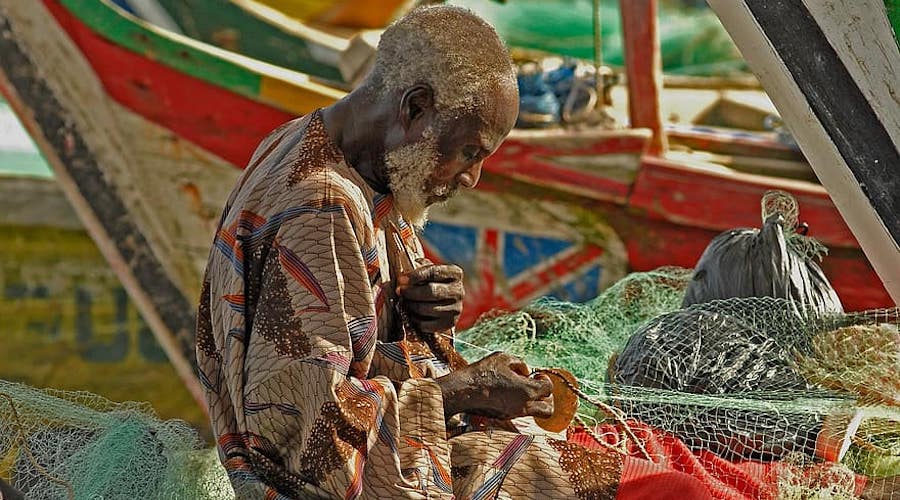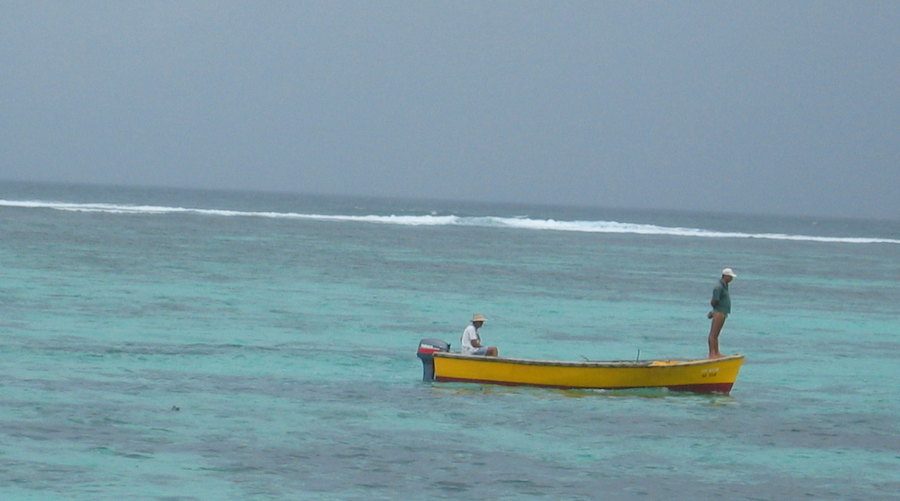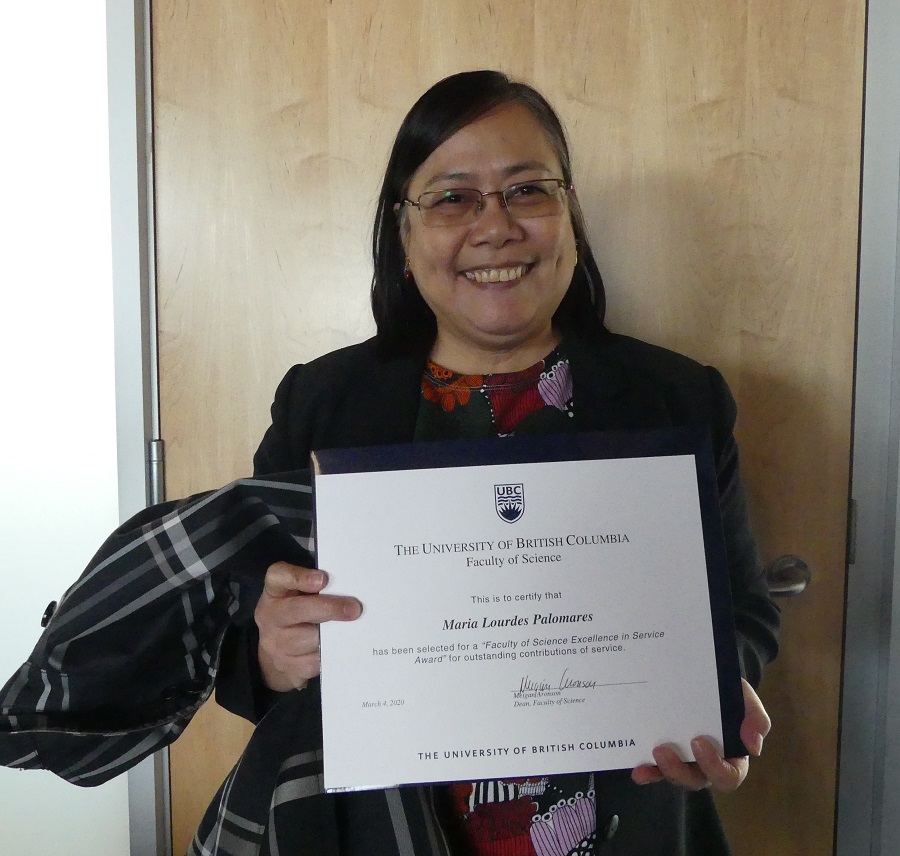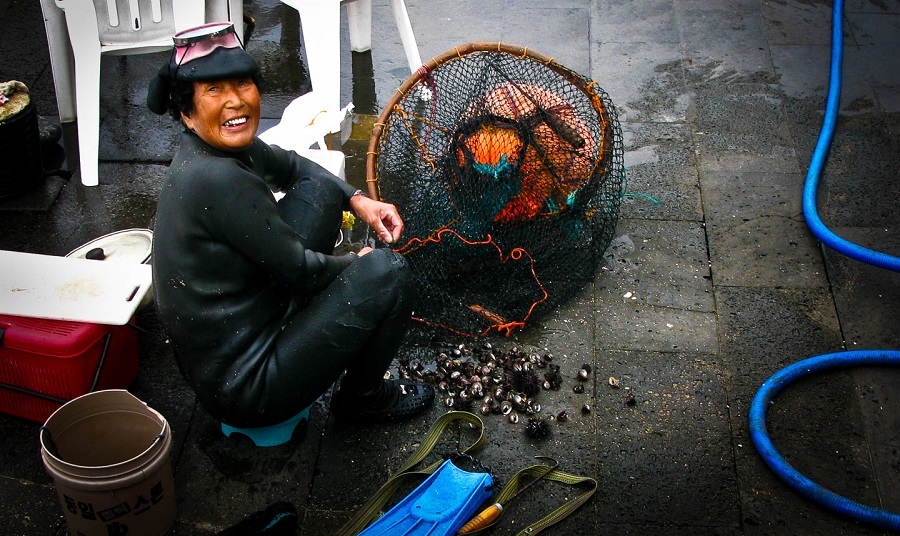
Ghanaian fisherman. Photo from Pikist.
Fish catches in Africa have reached a peak and, in many cases, have moved into a declining trend that threatens the food security and economic development of coastal areas.
A new study by researchers at the University of Western Australia, the University of British Columbia and Ecotrust Canada analyzed fishery yields in the seven Large Marine Ecosystems or LMEs that surround the African continent and found that most fisheries in the region rely on overfished resources.








